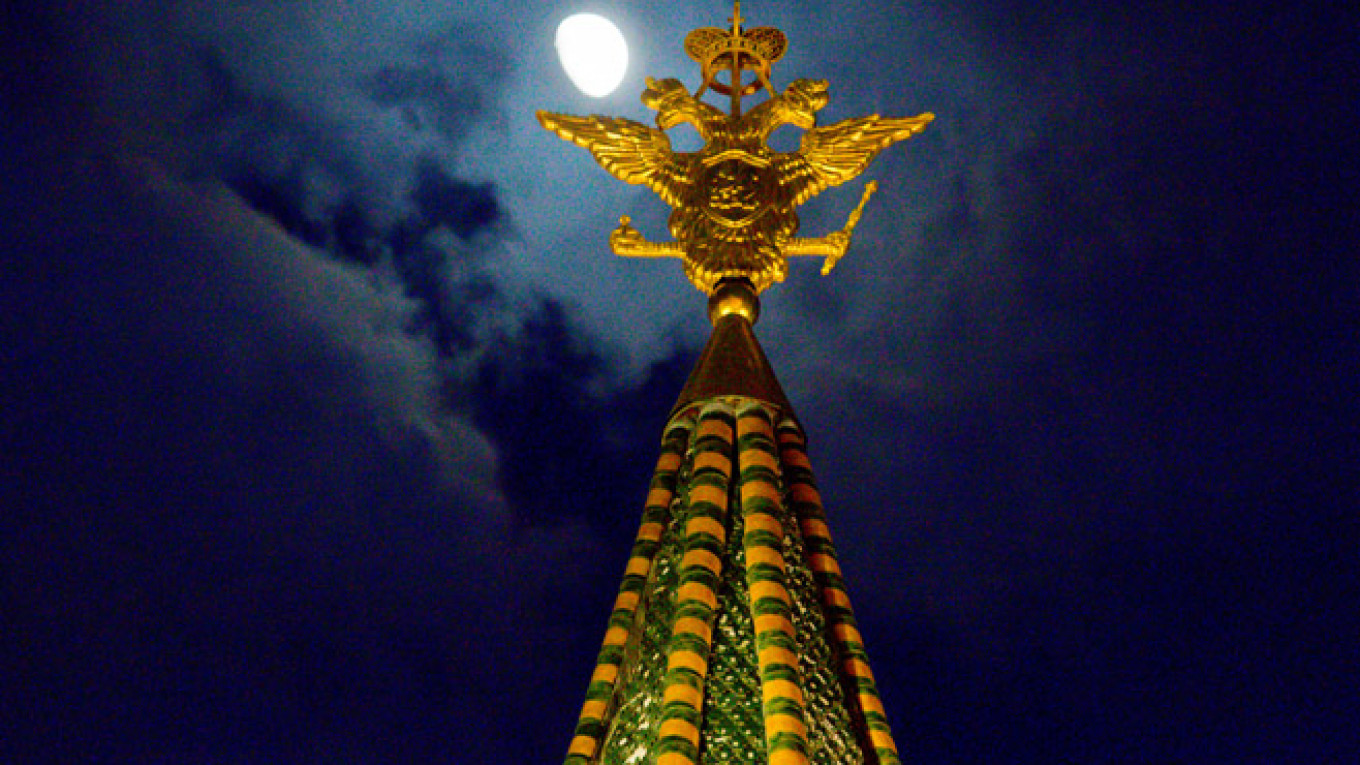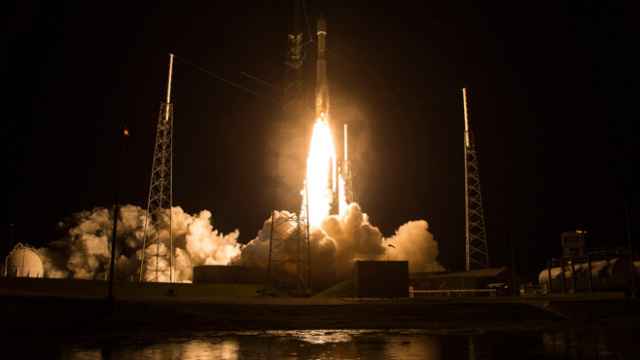An official at Russia's Roscosmos space agency on Tuesday said the upcoming federal space program, which allots funding for space activities over the next decade, will be cut by 10 percent due to Russia's economic crisis, the TASS news agency reported.
"The project, which is being prepared for 2016-2025, looks completely different today," Yury Koptev, head of Roscosmos internal planning body the Scientific and Technical Council, was quoted as saying.
The program was initially drafted late last year, but a 40-percent fall in the value of the ruble against the U.S. dollar since last summer and a massive space industry reform project have forced space officials to completely rewrite the document.
Koptev said the ruble's tumble contributed significantly to the rewrite, and the total cost of the program is expected to be finalized at 3.4 trillion rubles ($58.6 billion), according the news agency RIA Novosti.
Deputy Prime Minister Dmitry Rogozin has demanded a final draft be submitted to the government by June 10, or Roscosmos might run into funding problems next year, TASS said.
Koptev was quoted as saying that one proposal that was booted to the next federal program, which will cover the decade beyond 2025, was the creation of a new Russian super-heavy rocket — a project he estimated would cost 700 billion rubles ($12 billion).
Russia will not build such a vehicle until at least 2028, he said. In the meantime Russia will continue to focus on healing its scientific and industrial base to ensure it has the capacity to build the rocket down the line.
According to TASS, Koptev also said Roscosmos was looking at modifying the Angara rocket design to have a heavier lifting capacity — around 30 tons to low earth orbit, as opposed to a super-heavy rocket's 70 to 80 tons.
He estimated that the cost of the project, which would be called the Angara-A5V, would come in at around 37 billion rubles ($638 million), and that the Defense Ministry was interested in the proposal.
A Message from The Moscow Times:
Dear readers,
We are facing unprecedented challenges. Russia's Prosecutor General's Office has designated The Moscow Times as an "undesirable" organization, criminalizing our work and putting our staff at risk of prosecution. This follows our earlier unjust labeling as a "foreign agent."
These actions are direct attempts to silence independent journalism in Russia. The authorities claim our work "discredits the decisions of the Russian leadership." We see things differently: we strive to provide accurate, unbiased reporting on Russia.
We, the journalists of The Moscow Times, refuse to be silenced. But to continue our work, we need your help.
Your support, no matter how small, makes a world of difference. If you can, please support us monthly starting from just $2. It's quick to set up, and every contribution makes a significant impact.
By supporting The Moscow Times, you're defending open, independent journalism in the face of repression. Thank you for standing with us.
Remind me later.






